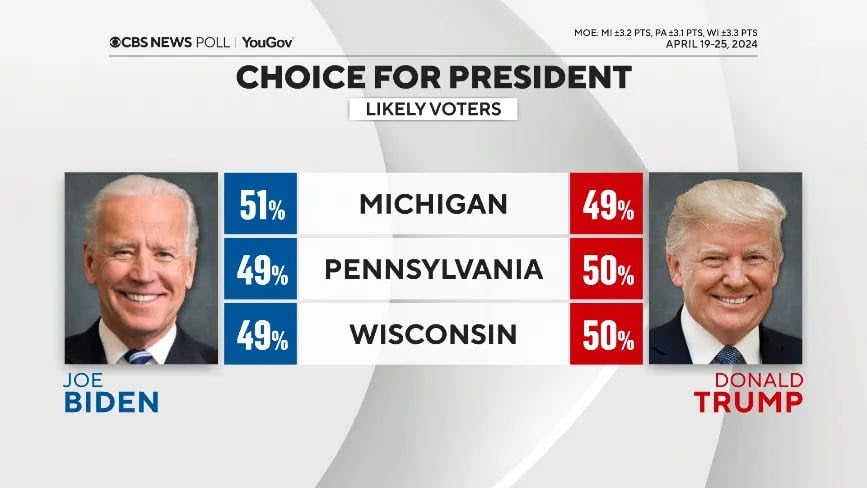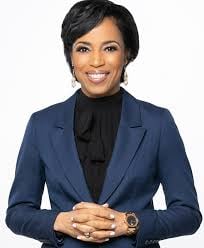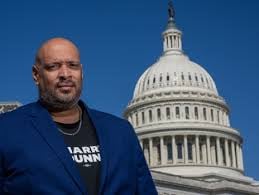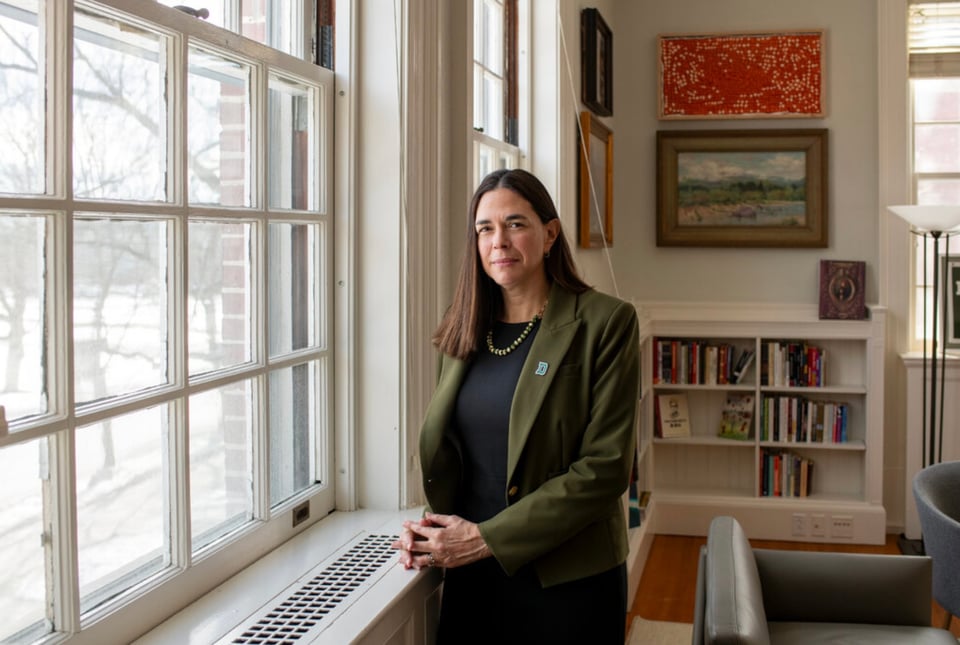Tuesday, May 14, 2024. Annette’s News Roundup.
I think the Roundup makes people feel not so alone.
To read an article excerpted in this Roundup, click on its blue title. Each “blue” article is hyperlinked so you can read the whole article.
Please feel free to share.
Invite at least one other person to subscribe today! Here 👇 is the link to share for others to subscribe. https://buttondown.email/AnnettesNewsRoundup
Remember: when you share the Roundup, you are fighting Fascism and helping to bring about a Democratic victory in 2024.
_________________________________________________
Joe is always busy.
Sometimes people need a helping hand.
My dad always used to say that the way you build wealth is by building equity in your home.
— President Biden (@POTUS) May 10, 2024
My housing plan would help Americans achieve homeownership by giving households $400 a month for two years when they buy their first home. pic.twitter.com/TH0BObFbRM
We have worked to take the crushing weight of student debt off teachers’ shoulders by fixing the Public Student Loan Forgiveness program.
— Joe Biden (@JoeBiden) May 10, 2024
To date, we have canceled over $62.8 billion in student debt for nearly 900,000 public service workers, including teachers.
BREAKING: According to CNBC, under President Biden’s leadership, the United States has replaced China as Germany’s biggest trading partner. President Biden is the toughest on China President in decades.
— Biden’s Wins (@BidensWins) May 12, 2024

_________________________________________________
Tell this to everyone you know - if the Trump defense in the New York criminal case dares to try to portray him as a “Family Man.”
Touch 👇 to watch Trump prove he is not.
Donald Trump was asked about the news that his son Barron will be a RNC delegate:
— Republicans against Trump (@RpsAgainstTrump) May 10, 2024
"He’s pretty young, I will say. He’s 17. But if they can do that, I’m all for it."
Barron turned 18 in March. pic.twitter.com/PbOsw8bJDs
And think about this too. 👇

_________________________________________________
On the subject of the Polls that may have ruined your day.
Touch 👇 to watch Morning Joe
.@JoeNBC: The New York Times Siena poll has consistently slanted toward Donald Trump. The New York Times will release their poll, the political and media class will run around with their hair on fire, and then three days later polls will show a deadlocked race. Does anyone think… pic.twitter.com/LzYu2jUz9t
— Biden-Harris HQ (@BidenHQ) May 13, 2024
From Simon Rosenberg -
“I realize the NYT headline of their story is Trump leads in 5 states, but that’s not what the data in these polls say. He leads in 3 - AZ, GA, NV - and 3 are essentially tied.

As I wrote on Saturday, if you spend your time with polls with registered voters you see an electorate more favorable to Trump. If you spend your time with likely voters you see one more favorable to Biden. This is becoming a very important part of our emerging understanding of the 2024 election, and a dynamic that is in my view very ominous for Trump. That the NYT Times centered their headline and graphics around the results with registered voters was an editorial choice.” (Hopium Chronicles).

Six years ago, Trump came to Wisconsin holding a golden shovel and promised to build a new manufacturing complex.
— Joe Biden (@JoeBiden) May 13, 2024
He failed to deliver.
Last week, I visited that same site to announce a $3.3 billion investment that’s going to create thousands of new jobs.
_________________________________________________
Today is Primary Day in Maryland, Nebraska and West Virginia.
Spread the word. Volunteer. Vote. Help get out the vote.
Trone, Justice look to take their wealth to the Senate, as Ricketts helps Bacon.

Rep. David Trone, D-Md., has put nearly $62 million of his own money into his campaign for Senate.
Tuesday’s primaries feature a multimillionaire House member and a multimillionaire governor vying for open Senate seats in Maryland and West Virginia, while a multimillionaire Nebraska senator is funding a super PAC to aid a potentially vulnerable House colleague.
Of course, money does not guarantee success, and the clearest example of that is in a North Carolina primary runoff Tuesday in which one of the candidates — after putting more than $4 million of her own money into the race — dropped out and endorsed her opponent.
Maryland
Senate: Rep. David Trone and Angela Alsobrooks, the Prince George’s County chief executive, are locked in a close primary for Maryland’s Democratic Senate nomination. The winner is likely to face Republican Larry Hogan, a former two-term governor whose entrance into the race pushed Maryland into the group of states set to hold competitive Senate races this year.
Hogan, who had been seen as a possible third-party candidate for president to challenge both President Joe Biden and former President Donald Trump, needs to clear his own primary on Tuesday. And one of his rivals, Robin Ficker, recently began airing ads saying he’d work with Trump if elected. But most of the focus leading up to Tuesday has been on the Democratic side, largely because Trone has blanketed the airwaves for months.
Trone, the co-owner of Total Wine & More, had loaned his campaign $54.1 million as of April 24, the date of the last full accounting to the Federal Election Commission filings. Since then, he’s filed last-minute disclosures that add another $7.7 million to that total.
Alsobrooks raised $7.8 million by April 24, and did not put any of her own money into the race. Outside groups have come to her assistance to try to make up some of the difference, but the largest buy, from Women Vote, the independent expenditure arm of EMILY’s List, started earlier this month, just after early voting began. Disclosures through Thursday showed the group spent $2 million on television ads opposing Trone.
An Emerson College poll released Thursday showed a tight race, with 42 percent of voters saying they supported Alsobrooks and 41 percent saying they supported Trone, with 12 percent undecided. Alsbrooks’ support grew to 47 percent when undecided voters said who they were leaning toward, while Trone’s grew to 44 percent.

Angela Alsobrooks, candidate for Senate in the Maryland Primary for the Senate.
But ahead of Tuesday’s election, the race between Trone and Alsobrooks has grown increasingly combative. While Trone is unapologetic about pouring his wealth into the campaign, Alsobrooks’ campaign and her allies have criticized him for calling her supporters “low level” and for an ad in which one of his supporters suggested she would need “training wheels,” a comment that Axios reported was later cut from the ad.
Both candidates have campaigned alongside their endorsers in recent weeks. Alsobrooks has campaigned with Sen. Chris Van Hollen, while Trone hit the trail Tuesday with California Rep. Adam B. Schiff, who is also running for Senate this year.
2nd District: Baltimore County Executive John “Johnny O” Olszewski faces five Democratic opponents for the seat being vacated by Rep. C.A. Dutch Ruppersberger. The winner of the Democratic primary will likely win the seat, which Biden would have won by 20 points in 2020, in November.
The other Democrats on the ballot are state Del. Harry Bhandari; Sia Kyriakakos, who was the state’s teacher of the year in 2017; state employee Sharron Reed-Burns; medical assistant Jessica Sjoberg; and insurance agent Clint Spellman.
Olszewski leads the pack in fundraising and reported raising $837,000 as of April 24, when he had $344,000 on hand. Protect Progress, a group with ties to the cryptocurrency industry, spent $209,000 to support his campaign. Bhandari trails him, having raised $181,000 and had $32,000 on hand as of the same date.
Olszewski is endorsed by Ruppersberger and fellow Maryland Democratic Rep. Steny H. Hoyer.
On the Republican side, Kimberly Klacik, a conservative talk radio host who ran in a 2020 special election in the 7th District to replace the late Rep. Elijah Cummings, is running against Army veteran and business owner John Thormann and businessman Dave Wallace.
Among Republicans, Klacik is the leading fundraiser, but she has a major deficit to Olszewski. She raised $38,000 and had $12,000 on hand as of April 24, compared to Wallace’s $30,000 raised and Thormann’s $3,000.
3rd District: The race to replace retiring Rep. John Sarbanes came into national view this year after Harry Dunn, a former Capitol Police officer who gained a national following speaking about his experience defending the Capitol on Jan. 6, 2021, joined the race in January.

Harry Dunn, a former Capitol Police officer who became a national figure after his testimony about Jan. 6, is running as a Democratic candidate for Maryland’s third congressional district.
Dunn joined a crowded field that has 22 Democrats on Tuesday’s primary ballot, although at least one of those candidates, Michael Coburn, has terminated his campaign, according to an FEC filing. Dunn has used his platform to outraise the field, bringing in $4.6 million as of April 24. He had $714,000 on hand for the final weeks of the campaign.
His closest competitor, state Sen. Sarah Elfreth, raised $1.5 million and had $248,000 on hand. A handful of other state lawmakers are among the nearly two dozen candidates in the race.
Elfreth has received outside assistance though. United Democracy Project, the independent expenditure arm of the American Israel Public Affairs Committee, spent $4.2 million on ads, phone banking and direct mail to support her campaign. One ad painted Elfreth as a productive member of the state legislature and focused on issues like abortion rights and the environment.
In one of his own ads, Dunn directly took on UDP’s support for Elfreth, questioning why “a right-wing SuperPAC funded by Trump donors” was supporting a Democratic candidate.
There are nine candidates in the Republican primary. The district would have supported Biden by 25 percentage points in 2020, according to Inside Elections with Nathan L. Gonzales, which rates the November race as Solid Democratic.
6th District: Trone’s Senate run opened a competitive race for the 6th District seat he now holds, and Democratic candidates flocked to this campaign as well. The Democratic primary ballot has 16 names on it, although some candidates already ended their campaigns, while the Republican ballot includes seven candidates. Inside Elections rates the race as Likely Democratic and it could be the state’s only competitive House race this fall.
Among the leading Democratic candidates are April McClain Delaney, a former Department of Commerce official; Joe Vogel, a member of the state House of Delegates; and Hagerstown Mayor Tekesha Martinez. Delaney’s husband, former Rep. John Delaney, was Trone’s predecessor in the seat before he ran for president in 2020.
Delaney leads the field in fundraising, having raised $1.9 million, including a $1.1 million loan, as of April 24 and had $767,000 on hand. Vogel raised $687,000 and had $117,000 on hand, while Martinez raised $580,000 and had $272,000 on hand.
Outside groups have sought to help Vogel and targeted Delaney. A group called Common Sense Common Ground PAC spent $48,000 supporting Vogel and opposing Delaney, while Equality PAC spent $397,000, mostly supporting Vogel but also opposing Delaney.
On the Republican side, Neil Parrott, the 2020 and 2022 Republican nominee in the district, is once again seeking the nomination. Dan Cox, who lost the state’s 2022 gubernatorial race, is also running.
Both were outraised by Navy veteran Tom Royals, who reported raising $521,000 as of April 24. Royals had $73,000 on hand for the final weeks of the campaign. Parrott raised $347,000 and had $163,000 on hand, while Mariela Roca, an Air Force veteran, raised $274,000 but had just $20,000 on hand on April 24. Cox raised $123,000 and had $23,000 on hand.
Another candidate, retired Maryland state trooper Chris Hyser, raised $153,000 and had $117,000 on hand as of April 24. An outside group called Constitutional Leadership PAC spent $58,000 to support his campaign.
Nebraska
2nd District: The expected rematch between Republican Rep. Don Bacon, a retired Air Force brigadier general who has served in the House since 2017, and Democrat Tony Vargas, a state lawmaker and former public school teacher, is likely to help determine which party controls the chamber. Bacon prevailed by about 5,900 votes when the two faced one another in 2022.
But before Bacon takes on Vargas in November, he’ll have to get past businessman Dan Frei in the Republican primary. The battle pits Bacon, a four-term incumbent who belongs to the GOP’s moderate wing, against Frei, a favorite of grassroots activists.
Bacon had $1.7 million on hand to Frei’s $41,000 on April 24.
Outside groups have also spent big on Bacon’s behalf. He received a $673,000 boost from the Big Red Leadership PAC, which despite its name is a super PAC funded primarily by Sen. Pete Ricketts, the state’s former governor who was appointed by his successor to an open seat last year. Ricketts is also on the ballot and faces two opponents for the nomination to serve the remainder of former Sen. Ben Sasse’s term.
The Congressional Leadership Fund, a group aligned with House GOP leadership, has spent $75,000 in support of Bacon and $10,000 opposing Vargas. Those numbers are likely to grow before the November election.
Three pro-law enforcement super PACs — Honoring American Law Enforcement, Support America’s Police and Law Enforcement for a Safer America — spent a more than $200,000 combined in support of Bacon.
Frei loaned his campaign about $5,000 and Bacon put in $3,500.
Vargas doesn’t face a Democratic primary challenger, but outside groups supporting him are already gearing up for November.
Vargas had $1.6 million on hand. The race is rated Tilt Republican.
West Virginia
Governor: There are congressional connections to the governor’s race this year. The six-candidate Republican primary includes the 2018 Senate nominee, state Attorney General Patrick Morrisey; Moore Capito, a former member of the House of Delegates and the son of Sen. Shelley Moore Capito; and Chris Miller, the son of Rep. Carol Miller.
Senate: Gov. Jim Justice and Rep. Alex X. Mooney are among the seven Republicans vying for the seat currently held by Sen. Joe Manchin III, a moderate and the sole remaining Democrat holding statewide office who announced in November he won’t run again.
There are also three candidates competing in the Democratic Senate primary: Wheeling Mayor Glenn Elliott, Marine Corps veteran and progressive activist Zach Shrewsbury and former coal company CEO Don Blankenship, who spent a year in federal prison and ran unsuccessfully for Senate as a Republican in 2018. But in a state that Trump won by 39 percentage points in 2020, Manchin’s departure means the seat is all but guaranteed to flip to the GOP.
More than $7.7 million in outside money has been spent on the Senate race so far. Club for Growth, the powerful conservative anti-tax group, has laid out at least $2.1 million to oppose Justice, funding ads that portray the governor as both a “deadbeat billionaire” whose companies cut off health insurance for retired coal miners, and a former Democrat who donated millions to the campaigns of Barack Obama and Hillary Clinton.
Justice, the owner of The Greenbrier resort in White Sulphur Springs, listed 17 assets on his Senate financial disclosure form worth at least $50 million. While he has not loaned his campaign any money, he has also been the beneficiary of more than $3 million in spending by Defend American Jobs, a super PAC affiliated with the cryptocurrency industry.
The race reflects a split within the GOP, with Justice, a former Democrat who has the backing of the Republican establishment in Washington, versus Mooney, a House Freedom Caucus member who has been endorsed by Trump and campaigned with Sen. Ted Cruz, R-Texas.
Mooney has been the target of $706,000 in opposition spending by the Conservative Americans PAC, while another PAC, Protect West Virginias Values, spent $523,000 supporting the five-term incumbent.
Justice had $750,000 on hand as of April 24; Mooney had $637,000.
The three Democrats seeking the seat had far less in their campaign accounts. Elliott, who has Manchin’s support, had the most with $65,000 followed by Shrewsbury with $57,000. But there is no preprimary disclosure available from the FEC for Blankenship. He filed a handwritten report for the first quarter showing a single $1,000 donation from himself.
Inside Elections rates the race as Solid Republican.
2nd District: Mooney’s run for Senate left an open seat in the safe red district that has drawn a crowd of contenders. The Republican primary field includes retired Air Force Brig. Gen. Chris Walker; Army veteran Nate Cain; retired Army Sgt. and cybersecurity engineer Joe Earley; Alex Gaaserud, who works in third-party logistics; and state Treasurer Riley Moore. The lone Democrat running is retired Navy officer Steven Wendelin.
Moore is part of a well-connected political family: His grandfather, Arch A. Moore Jr., was West Virginia’s longest-serving governor. Sen. Shelley Moore Capito is his aunt and Moore Capito is his cousin.
Several of Moore’s opponents have taken aim at his family connections and touted their outsider status. The district covers the northern half of the state and includes Morgantown, home to West Virginia University. It hasn’t been represented by a Democrat since 2001.
Moore got a $726,000 boost from Defend American Jobs, and Americans for Prosperity Action PAC, a pro-business group, spent $266,000 in support of his campaign. None of the other candidates benefitted from spending by outside groups.
With $408,000 on hand, Moore had the most resources in the final weeks before the primary. Walker, who loaned his campaign about $72,000, had $102,000. The rest of the field reported less than $35,000.
1st District: Rep. Carol Miller, who is seeking her fourth term, faces a challenge from three fellow Republicans, including Derrick Evans, who served three months in federal prison for his involvement in the Jan. 6, 2021, attack on the U.S. Capitol.
North Carolina
13th District: Former federal prosecutor Brad Knott should win the 13th District Republican primary runoff against attorney Kelly Daughtry, considering Daughtry suspended her campaign earlier this month and endorsed him.
The most recent disclosure through April 24 showed Daughtry had put $4.3 million of her own money into the campaign, raised another $146,000 from donors and had $621,000 remaining. She finished first in a 14-candidate primary in March with 27 percent of the vote. Knott got 19 percent. The race went to a runoff because North Carolina requires candidates to get at least 30 percent in primaries to be nominated.
Knott has put $780,000 of his own money into the race, but more importantly, he was endorsed by Trump last month.
The 13th District, now represented by Democratic Rep. Wiley Nickel, was redrawn to be much more heavily Republican by the state legislature after the state Supreme Court reversed a ruling before the 2022 election that had said partisan gerrymandering violated the state constitution. If the current boundaries had been in place then, Biden would have lost to Trump in the district by 12 percentage points, according to Inside Elections.
Nickel is not running this year, but said after the new map was adopted he will run for Senate in 2026. Small-business owner Frank Pierce was uncontested in the March Democratic primary. (RollCall).
_________________________________________________
Post graduation, is all quiet on American campuses?
Some. Some not.
Pro-Palestinian protests dwindle on campuses as some US college graduations marked by defiant acts.
A tiny contingent of Duke University graduates opposed pro-Israel comedian Jerry Seinfeld speaking at their commencement in North Carolina Sunday, with about 30 of the 7,000 students leaving their seats and chanting “free Palestine” amid a mix of boos and cheers.
Some waved the red, green, black and white Palestinian flag. Seinfeld, whose namesake sitcom was one of the most popular in U.S. television history, was there to receive an honorary doctorate from the university.
The stand-up comic turned actor, who stars in the new Netflix movie “Unfrosted,” has publicly supported Israel since it invaded Gaza to dismantle Hamas after the organization attacked the country and killed some 1,200 people in southern Israelon Oct. 7. The ensuing war has killed more than 35,000 people in Gaza, mostly women and children, according to Gaza’s Health Ministry, which doesn’t distinguish between civilians and combatants.
The small student protest Sunday at Duke’s graduation in Durham, North Carolina, was emblematic of campus events across the U.S. Sunday after weeks of student protests resulted in nearly 2,900 arrests at 57 colleges and universities.
Students at campuses across the U.S. responded this spring by setting up encampments and calling for their schools to cut ties with Israel and businesses that support it. Students and others on campuses whom law enforcement authorities have identified as outside agitators have taken part in the protests from Columbia University in New York City to UCLA.
Police escorted graduates’ families past a few dozen pro-Palestinian protesters who tried to block access to Sunday evening’s commencement for Southern California’s Pomona College.
After demonstrators set up an encampment last week on the campus’ ceremony stage, the small liberal arts school moved the event 30 miles (48 kilometers) from Claremont to the Shrine Auditorium in downtown Los Angeles. Tickets were required to attend the event, which the school said would include additional security measures.
In April, police wearing riot gear arrested 19 protesters who had occupied the president’s office at the college with about 1,700 undergraduates.
Demonstrator Anwar Mohmed, a 21-year-old Pomona senior, said the school has repeatedly ignored calls to consider divesting its endowment funds from corporations tied to Israel in the war in Gaza.
“We’ve been time and time again ignored by the institution,” Mohmed said outside the Shrine on Sunday. “So today we have to say, it’s not business as usual.”
At the University of California, Berkeley, on Saturday, a small group of pro-Palestinian demonstrators waved flags and chanted during commencement and were escorted to the back of the stadium, according to the San Francisco Chronicle. There were no major counterprotests, but some attendees voiced frustration.
“I feel like they’re ruining it for those of us who paid for tickets and came to show our pride for our graduates,” said Annie Ramos, whose daughter is a student. “There’s a time and a place, and this is not it.”
This weekend’s commencement events remained largely peaceful.
At Emerson College in Boston, some students took off their graduation robes and left them on stage. Others emblazoned “free Palestine” on their mortar boards. One woman, staring at a camera broadcasting a livestream to the public, unzipped her robe to show a kaffiyeh, the black and white checkered scarf commonly worn by Palestinians, and flashed a watermelon painted on her hand. Both are symbols of solidarity with those living in the occupied territories.
Others displayed messages for a camera situated on stage, but the livestream quickly shifted to a different view, preventing them from being seen for long. Chants during some of the speeches were difficult to decipher.
Protests at Columbia University, where student uprisings inspired others at campuses across the country, led the school to cancel its main graduation ceremony in favor of smaller gatherings.
The University of Southern California told its valedictorian, who publicly backed Palestinians, that she could not deliver her keynote speech at its graduation ceremony because of security concerns. It later canceled its main graduation ceremony.
At DePaul University in Chicago, graduation is more than a month away. But as the academic year closes, school leaders said they had reached an “impasse” with the school’s pro-Palestinian protesters, leaving the future of their encampment on the Chicago campus unclear.
The student-led DePaul Divestment Coalition, which is calling on the university to divest from economic interests tied to Israel, set up the encampment nearly two weeks ago. The group alleged university officials walked away from talks and tried to force students into signing an agreement, according to a student statement late Saturday. (Associated Press).
Dartmouth’s Leader Called in Police Quickly. The Fallout Was Just as Swift.
Local law enforcement went in just a couple of hours after a protest encampment went up.
As the police arrested student protesters at Dartmouth College, a 65-year-old professor ended up on the ground.
Two student journalists, reporting that night, ended up arrested themselves.
And a bystander, visiting his father who lives near Dartmouth College, found himself with a fractured shoulder.
That was some of the collateral damage after the president of Dartmouth College, Sian Leah Beilock, took unusually swift action and authorized the police action on May 1 to clear an encampment that students had, just two hours earlier, pitched on the college green.

Dartmouth College President Sian Leah Beilock.
Dr. Beilock, a cognitive scientist who studies why people choke under pressure, has been facing a campus uproar ever since.
Presidents have faced a platter of unappealing choices in handling the student encampments, which have recently popped up all over the country, to protest Israel’s war in Gaza.
A few colleges, like Northwestern University, struck agreements with their student protesters, and found themselves criticized for being too lenient. Others, like Wesleyan University, said protesters would face discipline but that officials would not use force to clear the tents if students remained nonviolent.
And at places like University of Chicago, administrators had warned against the encampments, and watched them enlarge over days, before calling in the police.
Dartmouth College has stood out for its almost instantaneous response to a nonviolent protest.
Students there erected the tents at about 6:45 p.m., protectively surrounded by more than a hundred supporters, linking arms. After warnings to leave, campus safety officials deferred to the Hanover Police Department, the New Hampshire State Police, and other local agencies. Arrests began around 8:50 p.m.
In an email the day after the arrests, Dr. Beilock said that allowing the university’s shared spaces to be taken over for ideological reasons is “exclusionary at best and, at its worst, as we have seen on other campuses in recent days, can turn quickly into hateful intimidation where Jewish students feel unsafe.”
Moshe L. Gray, the longtime executive director of the Dartmouth chapter of Chabad, an Orthodox Jewish group, said Dr. Beilock has taken “a very principled stand” since Oct. 7, making her stand out from her Ivy peers.
“She has an obligation to keep this school safe,” Rabbi Gray said. “Jewish students feel like she has done that for them.”
But to some faculty members, using law enforcement to arrest nonviolent protesters broke the compact that should exist on college campuses.
“We’re supposed to be a living example for how we manage divisive topics, and the most important thing in this process is that we don’t engage each other as enemies,” said Udi Greenberg, a history professor. “Sending the police on protesters is the exact opposite of engaging each other in good faith.”
There was also the matter of injuries.
Andrew Tefft, visiting his dad from out of town, took a walk to the green as the police moved in. He said he was unconnected to the college or the protesters, so when an officer ordered him to move, he was confused.
”I guess I was dumb enough to say, ‘Where?’” Mr. Tefft, 45, said in an interview. “I feel my phone get knocked out of my hands and go flying and I feel my arms getting pulled. I feel the metal cuffs go on. I was like, ‘Oh, I’m being arrested.’”
He said he fractured his shoulder during a scuffle with the police. An arrest report said that Mr. Tefft did not comply with orders and behaved aggressively during the arrest.
“I grew up in this town,” said Mr. Tefft, who has fond memories of watching bonfires on the green, “and this is the craziest story that’s ever happened to me.”
Annelise Orleck, the former head of Jewish Studies at the university, said she started taking videos of the arrests, when she was knocked to the ground as she tried to grab her phone from a police officer.
Alesandra Gonzales, a student reporter witnessed the professor’s arrest. Then she, too, was arrested. She called out to another student reporter, Charlotte Hampton, a news managing editor, who also ended up zip-tied. In an interview, both said they had press identification.
Local and state police officials did not agree to interview requests.
The last time so many campuses resorted to the police to confront student protesters was 1970 during the antiwar movement, said David Farber, an American history professor at the University of Kansas who has studied the 1960s. Students then were far more militarized than today, he said, noting that they firebombed campus buildings across the country.
“What’s different about this period is there’s been so many confrontations so fast, so many administrators calling in the cops so quickly,” he said.
In the last month, more than 2,800 students have been arrested across the country.
On May 6, in a raucous online meeting with faculty, which quickly met the 500-person limit, Dr. Beilock tried to explain her fast reaction.
“An ongoing encampment is not something we can ensure the safety of,” she said, “especially if people outside Dartmouth decide to join with their own agendas.” She cited Columbia University, where some outsiders had joined the protests, but were certainly not in the majority.
Many faculty were not appeased. They said that the violence came from the police, not the protesters.
“Five tents,” wrote Carolyn Dever, a former Dartmouth provost, in the comments of the chat as Dr. Beilock spoke, which was repeated by many faculty members.
“This is not Columbia,” another faculty member wrote.
“Drop the charges,” wrote another.
Matthew J. Garcia, a history professor, said Dartmouth used a big-city solution for the serene, rural town of Hanover.
“It’s like a place out of time,” he said, adding, “It is absurd to suggest that this is a hotbed of revolution.”
The student newspaper also criticized the university in an editorial, demanding that the university urge the authorities to drop the charges against their reporters.
“The college should be embarrassed,” it stated. “We expect a prompt and public apology from College President Sian Leah Beilock.”
University administrators responded defiantly at first, saying they supported the student reporters’s right to clear their names “through the legal process.”
But as the backlash grew, and press freedom supporters slammed the university, Dr. Beilock relented, stating in a column in the student newspaper that the reporters should not have been arrested. “We are working with local authorities to ensure this error is corrected,” she wrote.
The charges against the reporters were dropped.
Some on campus may not be demand-her-resignation angry. In a measure perhaps of the high social cost of supporting Dr. Beilock, the student council voted publicly for a no-confidence measure, 13-2, with three abstaining. After the student body president vetoed the public vote, citing inadequate deliberation, another vote, held privately, reversed the decision, 9-8 against, with two abstaining. The entire student body is now voting on a no-confidence measure.
The faculty is divided.
“Our president is Jewish herself and has been on top of how Jewish students are feeling on the campus,” said Sergei Kan, an anthropology professor. He said students at the protest were chanting offensive, “borderline antisemitic” slogans like “From the river to the sea, Palestine will be free.” (Many supporters of the Palestinians say the phrase is a rallying cry for the dignity of Palestinians).
“When they surrounded the tents and held hands, they were ready for a fight,” Dr. Kan said, adding that the green “belongs to all of us.”
Dartmouth’s board has also supported the action. Liz Cahill Lempres, Dartmouth’s board chair, said in an email to The Times that she had spoken with all board members and “each one unequivocally supports” Dr. Beilock.
In any case, the arrests may not deter the protesters. Months before tents became a symbol of pro-Palestinian activism on college campuses nationwide, Kevin Engel and other students set up two outside the Dartmouth administration building to seek divestment from Israel.
Mr. Engel, a first-year student, and another student were arrested on a trespassing charge, an early sign that Dr. Beilock was serious about cracking down on policy violators.
Dr. Beilock’s decision, Mr. Engel said, turbocharged the student activists.
“We’re not going to stop,” he said. “Palestine will be free within our lifetimes. The students are taking up the burden of doing that work because no one else really is.” (New York Times).
It seems appropriate that May is Jewish American Heritage Month.
As American antisemitism seems to be exploding…
Our poor country. Our poor people.
